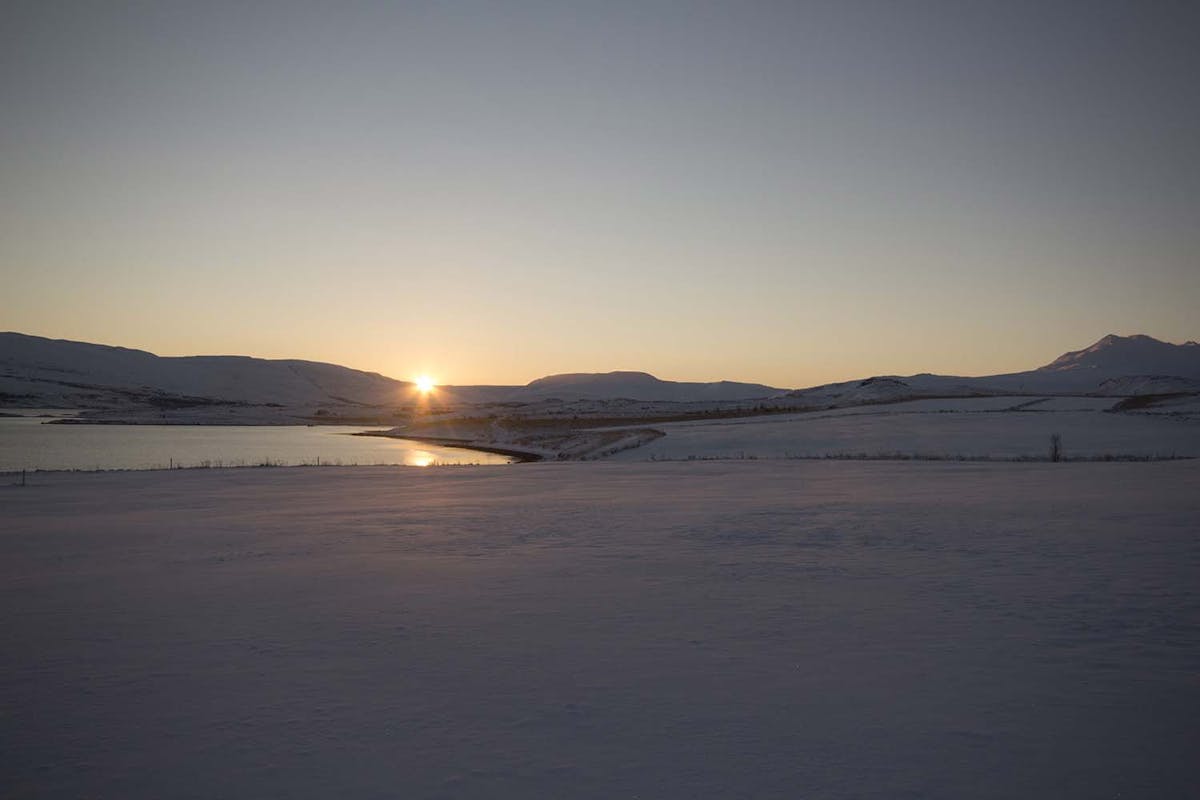We've only been back to Iceland once after the long stay, for a hiking tour in fall of 2018.
But in my mind, I haven’t left Iceland at all: not a single day goes by on which I don’t think about the country, the time spent, the things I experienced. Most of them are trivial, really. It’s singular moments and images that come back.
Obviously, writing about everything has brought back memories, looking at the pictures reminded me of everything that happened, but was pushed to the back of my mind. I still follow Icelandic sites on Facebook, occasionally I repeat my Icelandic vocabulary on Memrise.
It doesn’t feel like such a long time ago. I still have the country in me. The experiences, the nature, the driving and exploring built up a store of positive emotions that’s still available.
In crowded places, I can close my eyes and think back to the wide fjords and beautiful landscapes. It calms me.
While meditating after a busy day, I remember sitting in a hot tub under the skies that are lit up with the dancing veils of northern lights.
In stressful times, I’m often reminded of the Icelandic creed “þetta reddast”, which is pretty much “Hakuna Matata” for the Icelanders. Everything will be alright.
We often talk about some moment, some memory. “Do you remember when …?” We think about the two awesome dogs that lived in the guesthouse, the horses, the little cat that tragically died in a car accident. We think about the snow storms and put on our Icelandic wool pullovers proudly. We face the weather on windy and rainy days a little more bravely.
What’s interesting to me: we hadn’t been away forever, it was barely six months. I find that on longer travels, there is a gap between the amount of unique experiences that the traveler has, as compared to the things happening at home. Not much has changed, maybe someone started a new job or graduated school. But the life is similar — same home, same routines, same seasons.
The traveler sees new things every day, sleeps in many different beds and locations, and meets new people all the time. Subjectively, after the journey is over, it has been a time much richer and denser in terms of experiences that are both unique and different from what happens back home.
I’d argue that travel not only broadens your mind, it also deepens your mind!
You think longer about the events that happened. Ideally, those events were filled with deep emotions and new insights about yourself, the world, the nature of things. We are all capable of experiencing wonder and excitement, awe and reverence for entities that are bigger than us.
It’s a good practice to meditate on the enormity of time and space in which we are but tiny sparks. Traveling allows this practice to happen almost daily. It doesn’t matter whether you come to a city full of millions of individuals who are all leading their own unique lives with their unique dreams, hopes and worries; or if you walk through a valley that a glacier has made, grinding pebble by pebble for thousands of years.
It helps you realize that you can’t control the vastness of life.
Those moments are deeply spiritual, which was an important discovery for me. Since my teenage years, I’ve quit organized religion and I’d call myself an atheist.
Nevertheless, it took some years until I could accept spirituality into my life — it was easy, because it doesn’t require me to believe in supernatural causes or beings. As Richard Dawkins said:
“Just because you can understand why a rainbow is formed doesn’t make it any less beautiful.”
I’ve had a hard time with meditation. For a long time, mainly out of willful ignorance, I put meditation into the corner of esoteric practices — it is being marketed as such (just take a look into the “spiritualism corner” of any bookstore. Gladly, I gave it a chance and discovered that (now it’s obvious to me) meditation needs no roots in esotericism. Instead, it’s a powerful way to control thoughts and emotions.
Back to traveling. When we came back to Germany and moved to our new apartment, I noticed that I have a lot of things. We had those stored at our parent’s place and not used for the six months of our journey.
There, all we had was 2 suitcases of clothes, some books and our laptop and smartphones. Somehow, it was enough. I did miss my guitar, but that was about it. The laptop has become a central piece of equipment. It unites many functions that were not available in the past: reading, writing, communication, design, planning, booking, organizing… with a laptop and internet connection, you can do work which used to require an office full of specialized machinery.
I can understand the appeal of the Digital Nomad — living in a country with low expenses and earning money online. Yet, it’s nice to have a home bigger than the 10 square meters we had in Iceland.
When we went back in 2018, it felt a lot like coming home. Maybe one day, it will be home.
